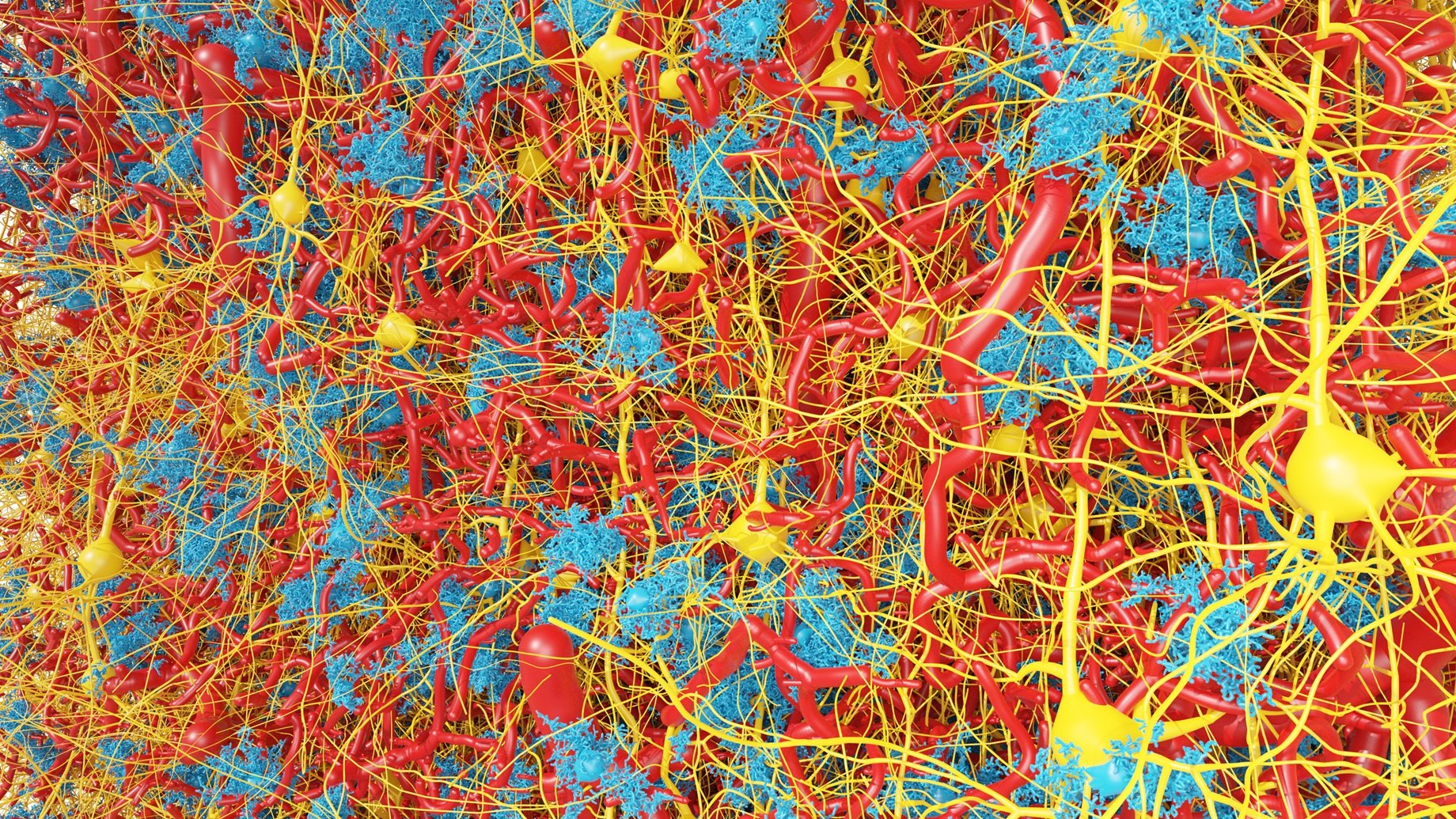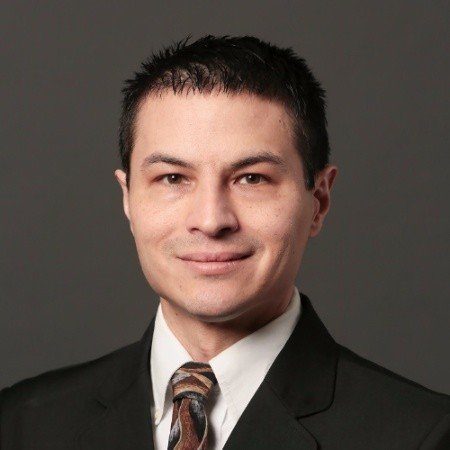

Frontiers Forum Deep Dive series
NANOSPRESSO: Towards personalized locally produced nucleic acid nanomedicines
9 July 2025
A new open-source model of brain metabolism – the most complex ever built – shows how altering key chemicals through diet and exercise could restore resilience to aged brain cells. The model, published in a Frontiers in Science lead article, also reveals new targets for future dementia treatments.

Speakers
-

Prof Henry Markram
École Polytechnique Fédérale de Lausanne & Open Brain Institute, Switzerland
-

Dr Polina Shichkova
Biognosys AG, Switzerland
-

Dr Dan Keller
Open Brain Institute, Switzerland
-

Dr Jay S Coggan
NeuroLinx, USA
-

Prof Mark Mattson
Johns Hopkins University School of Medicine, USA
-

Prof Pierre Magistretti
King Abdullah University of Science and Technology (KAUST)

Modeling metabolism in the aging brain
Join the model’s creators and study authors for an in-depth discussion on the most comprehensive computer model of brain metabolism to date. Building on these findings, this Deep Dive reveals how the new model, available open-source to researchers via the Open Brain Platform, could accelerate research into interventions to protect and repair the aging brain, such as diet, exercise, and new drug targets.
Learn how aging affects metabolism, neuronal activity, and blood flow in the brain, intricately mapped across 16,800 biochemical interactions.
Agenda
Introduction & setting the scene
Deep dive
Charting a path forward | Panel discussion and Q&A

Speaker and contributor bios
-
Henry Markram
Professor of Neuroscience, École Polytechnique Fédérale de Lausanne, Switzerland
Prof Henry Markram is a world-renowned neuroscientist whose pioneering work is reshaping the landscape of brain research and computational neuroscience. Co-founder of Frontiers, he also established the Brain Mind Institute at École Polytechnique Fédérale de Lausanne, the Swiss Blue Brain Project, and the landmark Human Brain Project, a Future and Emerging Technologies (FET) flagship initiative of the European Commission.
Henry’s research revealed key mechanisms of synaptic plasticity, including spike-timing-dependent plasticity (STDP), and he co-developed the Intense World Theory of Autism together with Kamila Markram, as well as a new paradigm for computing, called liquid computing. As part of the Blue Brain Project, his team has built digital twins of the brain to allow simulation experiments on virtual brains running on supercomputers.
He has received numerous awards and honors, including the Bell Labs Claude Shannon Visionary Award and the International Hebb Award.
-
Polina Shichkova
Proteomics Application Data Scientist, Biognosys AG, Switzerland
Dr Polina Shichkova’s research centers on computational systems biology with a focus on molecular neuroscience, brain aging, and bioinformatics.
With a background in biotechnology and proteomics, her research extracts biological insights from proteomics data.
Polina’s pioneering research on brain metabolism has led to her developing the most comprehensive molecular model of the neuro-glia-vascular system to date, which has revealed new therapeutic targets for age-related neurodegenerative diseases.
A rising star in the field, Polina is currently a proteomics application data scientist at Biognosys AG.
-
Daniel Keller
Research & Development Scientist, Open Brain Institute, Switzerland
Dr Daniel Keller is the group leader in Molecular Systems at the Blue Brain Project on a mission to use cutting-edge science and technology to improve the human condition. His team specializes in the development of multiscale molecular simulations, with a particular focus on neuronal metabolism, intracellular signaling pathways, and the molecular phenotyping of neuronal cell types.
The team have constructed biologically realistic models of the mouse brain hosted on the Blue Brain Project’s state-of-the-art supercomputer infrastructure, enabling unprecedented in silico experimentation and hypothesis testing.
Daniel's research objective is to harness science and technology to bridge the gap between biology and engineering. His work seeks to inform both fundamental neuroscience and the next generation of bio-inspired technologies.
-
Jay S Coggan
Board President, NeuroLinx Research Institute, USA
Neuroscientist Dr Jay S Coggan is the founder and president of NeuroLinx, a non-profit research institute dedicated to advancing neuroscience research through open scientific collaboration and data sharing. Previously, Jay served as a senior scientist at EPFL, as part of the Molecular Systems group in the Simulation Neuroscience division of the Blue Brain Project.
Jay's research has focused on synaptic plasticity mechanisms, ion channel functions, cell metabolism, and models of demyelination diseases such as multiple sclerosis.
Over the course of his career, he has held positions at renowned research organizations such as the Salk Institute for Biological Studies, the Howard Hughes Medical Institute, and the University of California, San Diego.
-
Mark Mattson
Johns Hopkins University School of Medicine, United States
Prof Mark Mattson is one of the world’s most highly cited neuroscientists, best known for his pioneering research on brain aging, synaptic plasticity, and neurodegenerative disorders. Over nearly two decades at the National Institute on Aging (NIA), where he served as Chief of the Neuroscience Research Laboratory, he led research that uncovered key cellular mechanisms by which intermittent fasting and exercise enhance cognitive function and protect the brain from age-related dysfunction and neurodegeneration.
A Fellow of the American Association for the Advancement of Science, Mark has received the Alzheimer’s Association Zenith Award, the Metropolitan Life Foundation Medical Research Award, and the Santiago Grisolia Chair Prize. He is the author of several influential books, including The Intermittent Fasting Revolution and Sculptor and Destroyer, and serves as the host of the popular scientific podcast Brain Ponderings. Mark currently holds an appointment as Adjunct Professor of Neuroscience at the Johns Hopkins University School of Medicine.
-
Pierre Magistretti
Vice President for Research, King Abdullah University of Science and Technology (KAUST)
Prof Pierre Magistretti is a distinguished neuroscientist renowned for pioneering research on brain energy metabolism and glial cell biology. His laboratory discovered the astrocyte-neuron lactate shuttle, revealing how astrocyte-derived lactate supports neuronal activity, memory, and neuroprotection. These insights have been fundamental for interpreting functional brain imaging and understanding neuroplasticity.
Pierre is Ibn Sina Distinguished Professor at King Abdullah University of Science and Technology (KAUST) and Professor Emeritus at the Brain Mind Institute at EPFL and the Universities of Geneva and Lausanne. Author of over 300 peer-reviewed publications, he is the recipient of major honors, including the Camillo Golgi Medal, IPSEN Foundation Prize, and membership in Academia Europaea and the Accademia Nazionale dei Lincei.
Pierre is the Past President of the Federation of European Neuroscience Societies (FENS) and Past President of the International Brain Research Organization (IBRO).
